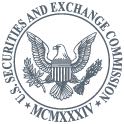
- December 12, 2016 Objection of the Securities & Exchange Commission to Debtor Green Box NA Green Bay LLC’s Second Amended Plan & Disclosure Statement, U.S. Bankruptcy Court, Wisconsin Eastern District Docket No. 16-24179-beh, Chapter 11, Green Box NA Green Bay LLC
The Securities and Exchange Commission (“SEC”) objects to the Second Amended Chapter 11 Plan (“Plan”) and Disclosure Statement (“Disclosure Statement”) filed by Green Box NA Green Bay, LLC …because the Plan impermissibly seeks to release non-debtor third parties and discharge the Debtor. [Footnote: At this time, the SEC’s objection is limited only to protecting its rights to enforce the federal securities laws and safeguard investors and the markets. That the SEC has not objected to adequacy of disclosure should not be construed as a representation as to the validity of the characterizations or factual statements made by Debtor in the Second Amended Disclosure Statement.] …
Responding to the sweeping injunction proposed by the Debtor has turned into a game of Whack-A-Mole. As soon as the Court ordered the removal of one non-debtor (RTS), the Debtor sought to release another (NewCo). At the last disclosure hearing, the SEC objected that the Debtor’s proposed plan purported to discharge the Debtor in contravention of Section 1141(d)(3)(A) and enjoin actions against non-debtors that would impermissibly restrict the SEC from pursuing actions for violations of the federal securities laws. This Court ordered that the Debtor remove non-debtor parties from the injunction. Yet, the Debtor has once again included a provision that would permanently enjoin actions against a non-debtor third party (NewCo) in contravention of Section 524(e) of the Bankruptcy Code and the controlling law of the Seventh Circuit. The Court should reject Debtor’s proposal to include NewCo in the injunction for the same reason it ordered RTS removed. Further, the injunction acts as a discharge of the Debtor in contravention of Section 1141(d)(3), and is therefore improper. …
DISCUSSION
The Plan includes a broad injunction that operates as a release of non-debtor liabilities. While the Debtor removed Environmental Advanced Reclamation Technology HQ, LLC (“EARTH,” a/k/a Reclamation Technology Systems, LLC (“RTS”)) from the injunction in Article VII of the Plan upon this Court’s order, it added NewCo in its place. NewCo will acquire assets of the Debtor as part of a supposed future waste reclamation and recycling business. Plan, Art. 1.17. In exchange, the Debtor will receive 30% of NewCo’s equity. Disclosure Statement, p. 43. Stephen Smith, the managing member of the Debtor [GlenArbor Partners, Inc.], testified at the previous disclosure hearing that NewCo was a new and separate entity from the Debtor. NewCo has not filed its own petition under Chapter 11 and therefore is a non-debtor. Thus, the broad injunctive provision in the Plan is tantamount to a third party release in favor of the non-debtor, NewCo. It is impermissible to restrict governmental actions through injunctive or release provisions in a Chapter 11 plan. The Debtor admitted that it intends to shield NewCo from legitimate actions by the SEC. [Footnote: The Debtor states that, “Specifically, the Securities and Exchange Commission has been investigating the activities of {Ron Van Den Heuvel} and current management has proposed this Plan in order to provide an entity on an ongoing basis that is not liable for any of the debts or offenses of {Ron Van Den Heuvel} or his entities.” Disclosure Statement, p. 26. Thus, the Debtor intends that NewCo benefit from the Debtor’s bankruptcy by estopping the SEC from pursuing appropriate actions for violations of the federal securities laws.] Despite Seventh Circuit precedent, the Debtor once again seeks approval of Plan provisions that permanently enjoin and release claims of creditors against non-debtor third parties. This Court has already ordered that the Debtor remove non-debtor parties from release and injunctions in the Plan. On its face, the injunction is contrary to controlling law and constitutes an impermissible violation of Section 524(e) that renders the Plan unconfirmable.
Further, the Plan injunction discharges the Debtor in contravention of Section 1141 of the Bankruptcy Code. Section 1141 provides that a corporate debtor cannot obtain a discharge if it has liquidated all or substantially all of its assets and does not engage in business after confirmation. The Debtor should not be permitted to end-run the Bankruptcy Code to secure a discharge through an injunction.
The Debtor is currently not operating a business. Under the Plan, substantially all of the assets of the Debtor will be transferred to NewCo. In a newly added provision to the Plan, the Debtor states that it will retain the Kool Units and undertake to develop and sell the units. This new business plan represents a complete reversal of the Debtor’s prior position that it would sell the Kool units on the open market or surrender them to Cliffton Equities, Inc. (“Cliffton”). [First Amended Disclosure Statement, Dkt. 116, p. 34]. It appears that this newfound interest in developing the Kool units is intended to thwart the SEC’s objection to the Debtor’s discharge by fabricating an ongoing business. The Debtor wholly fails to set forth a workable plan for this self-styled business. Indeed, the Plan provides that Cliffton may elect to take back any piece of its collateral, including the Kool Units. Given that the revenue necessary to make distributions contemplated under the Plan to pay Cliffton the value of the Kool Units is highly speculative, it is likely that Cliffton will demand the return of the Kool Units. Cliffton has already moved for relief from the stay to exercise all of its rights and remedies with respect to the Cliffton collateral. [Motion for Relief from Stay, Dkt. 129]. Cliffton recognizes that it is highly unlikely that a plan can be confirmed that would compensate Cliffton for its collateral. Id. at p. 11. Thus, the Debtor’s supposed “ongoing business” is unconvincing.
The Bankruptcy Code does not allow for a discharge under these circumstances. Section 1141(d)(3) provides that a corporate debtor cannot obtain a discharge if it has liquidated all or substantially all of its assets and does not engage in business after confirmation. The real motivation behind this Plan is to impermissibly restrict the lawful police and regulatory actions of the SEC, not to engage in a legitimate business.
CONCLUSION
WHEREFORE, for the reasons stated above, the SEC respectfully requests that the Court enter an order denying approval of the Disclosure Statement unless the Injunction under Article VII is modified or deleted from the Plan.
GREEN BOX NA & NEWCO
REORGANIZATION PLAN &
BUSINESS MODEL:
- December 12, 2016 Limited Objection of Quotient Partners, LLC, to 2nd Amended Disclosure Statement, U.S. Bankruptcy Court, Wisconsin Eastern District Docket No. 16-24179-beh, Chapter 11, Green Box NA Green Bay LLC
…The Disclosure Statement states that the two Bretting machines that secure Quotient’s claim “are owned by Daniel Platkowski, but shall be under an agreement to be rolled into NewCo“ [Disc. Stmt. P. 40]. Upon information and belief, the two Bretting machines are not owned by Daniel Platkowski. In addition, the Disclosure Statement contains no information concerning the “agreement” pursuant to which the Bretting Machines, in which Quotient has a security interest, will be “rolled into NewCo.”
WHEREFORE, Quotient respectfully requests that this Court enter an order denying approval of the Disclosure Statement.
- December 12, 2016 Ability Insurance Company’s Objections to 2nd Amended Disclosure Statement, Wisconsin Eastern District Docket No. 16-24179-beh, Chapter 11, Green Box NA Green Bay LLC
OBJECTIONS
The Amended Disclosure Statement fails to provide the information discussed herein. The undersigned has communicated these concerns to Debtor’s counsel, but has not received any response regarding the same.
1. The Disclosure Statement does not identify the length of the proposed Plan. Class 8 Creditors need to know when they can expect payment of their claims under the Plan.
2. The Disclosure Statement does not reference any requirement of NewCo to distribute net income to its equity holders (the Debtor being a 30% equity holder). If NewCo has the ability to simply retain net proceeds until after the Plan period is over (perhaps NewCo would opt to reinvest that cash) then the promise of paying Class 8 claims from that disbursement is meaningless and illusory. Nor is there any indication that NewCo has subjected itself to the jurisdiction of the Court so as to be bound by Debtor’s Plan and Disclosure Statement in the first instance.
3. The Disclosure Statement does not provide for an alternative means of liquidating the assets of Debtor if Debtor is unable to obtain financing by March 31, 2017 (and is unable to obtain an extension from this Court “for cause”).
4. The Disclosure Statement is inconsistent with the terms of the proposed Plan. Specifically, Paragraph 4.8 of the 2nd Amended Plan [Doc. 152] provides that Debtor will only hold a certain share of the dividends it receives from NewCo for payment to Class 8 claims. There is language in the Amended Disclosure Statement providing that Debtor will use all disbursements from NewCo to pay Class 8 Claims [Doc. 151, p. 28], but that is inconsistent with Paragraph 4.8 of the 2nd Amended Plan.
SUMMARY
Debtor’s 2nd Amended Disclosure Statement fails to provide “adequate information” that would enable Ability to make an informed judgment whether to accept or reject Debtor’s proposed Plan, as required by 11 U.S.C. § 1125(a)(1). Ability respectfully requests that the Court deny Debtor’s request for approval of the 2nd Amended Disclosure Statement.
- December 1, 2016 Green Box NA Green Bay LLC’s 2nd Amended Disclosure Statement, U.S. Bankruptcy Court, Wisconsin Eastern District Docket No. 16-24179-beh, Chapter 11, Green Box NA Green Bay LLC
- December 1, 2016 Green Box NA Green Bay LLC’s 2nd Amended Plan of Reorganization, U.S. Bankruptcy Court, Wisconsin Eastern District Docket No. 16-24179-beh, Chapter 11, Green Box NA Green Bay LLC
- AUDIO – November 21, 2016, 11:03:28 A.M., Hearing (Part 1) re: Approval of Debtor’s Amended Disclosure Statement [Run Time 01:54:50], U.S. Bankruptcy Court, Wisconsin Eastern District Docket No. 16-24179-beh, Chapter 11, Green Box NA Green Bay, LLC
- AUDIO – November 21, 2016, 02:05:44 P.M., Hearing (Part 2) re: Approval of Debtor’s Amended Disclosure Statement [Run Time 02:50:15], U.S. Bankruptcy Court, Wisconsin Eastern District Docket No. 16-24179-beh, Chapter 11, Green Box NA Green Bay, LLC
- UPDATE regarding Ron & Kelly Yessman Van Den Heuvels’ federal bank fraud criminal case, U.S. District Court, Eastern District of Wisconsin Case #1:16-CR-640-WCG-DEJ, USA v. Ron Van Den Heuvel, Paul Piikkila, and Kelly Van Den Heuvel:
REVISED PRETRIAL SCHEDULING ORDER as to Ronald H Van Den Heuvel, Paul J Piikkila, Kelly Yessman Van Den Heuvel signed by Magistrate Judge David E Jones on 12/6/16. Pretrial Motions due by 4/17/2017. Responses due by 5/15/2017. Replies due by 5/30/2017. Please consult the Courts initial Pretrial Order, 17 for additional details concerning the filing of pretrial motions. The parties are directed to contact courtroom deputy, Katina Hubacz (414-297-1200), to schedule a status conference for early March 2017 to assess the status of discovery and address any issues the parties may then have with the current schedule. The time between November 30, 2016, and April 17, 2017, is excluded from the speedy trial deadline under 18 U.S.C. § 3161(h)(7) (B)(ii). (cc: all counsel) (kah) (Entered: 12/07/2016)
See also:
- Previous court filings on Oneida Eye’s ‘Documents’ page
- September 20, 2016 SUPERSEDING INDICTMENT (including 6 NEW Counts For a Total of 19), U.S. District Court, WI Eastern District, Case No. 16-CR-064, UNITED STATES OF AMERICA v. RONALD H. VAN DEN HEUVEL, [his wife] KELLY YESSMAN VAN DEN HEUVEL and PAUL J. PIIKKILA [Horicon Bank Loan Officer and the Interim Controller of the Green Detroit Regional Center EB-5 Immigrant Investor Program that promoted Ron’s Green Box NA Detroit LLC scam to multple foreign investors]
- July 1, 2016 Paul Piikkila Plea Agreement in U.S. District Court, Eastern District of Wisconsin Case No. 16-CR-64, United States of America v. Paul J. Piikkila [21 pages re: Conspiracy/Fraud Schemes against Horicon Bank with Ron & Kelly Van Den Heuvel]
